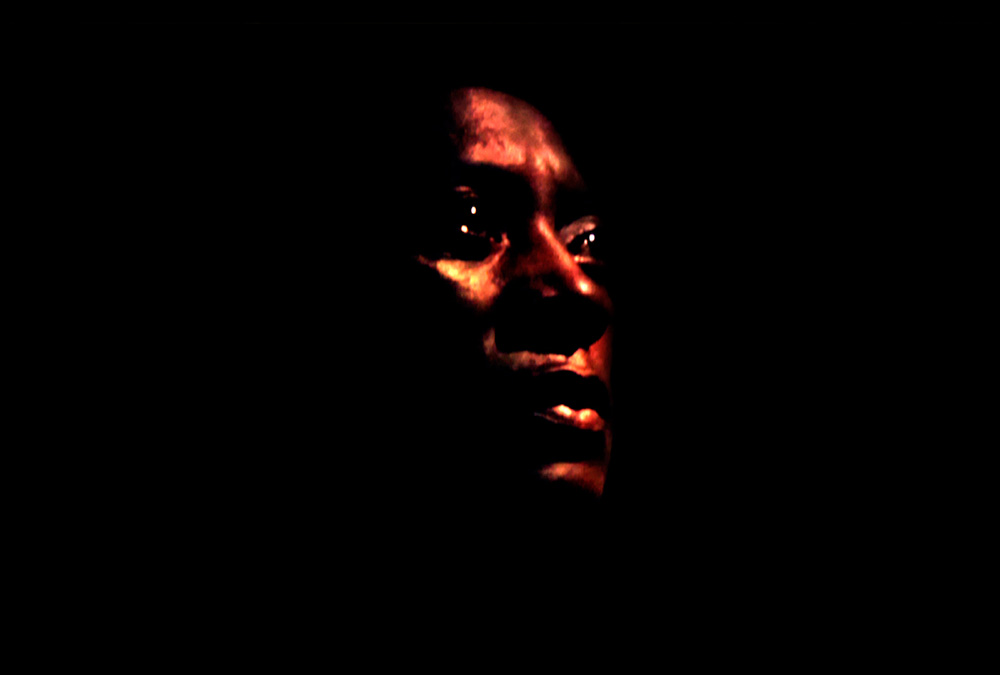Het diepgewortelde verlangen van filmmaker Pedro Costa om met muziek en zang te werken heeft geleid tot deze wonderlijke muzikale podiumproductie, tot stand gekomen in nauwe samenwerking met barokmuziekensemble Os Músicos do Tejo. The Daughters of Fire volgt het verhaal van drie jonge Kaapverdische zussen die in een Europese haven aankomen op de vlucht voor de zoveelste verwoestende uitbarsting van de Fogo-vulkaan. In dit onbekende land dwalen ze hand in hand terwijl ze hun verborgen angsten oproepen door middel van muziek en zang. Deze voorstelling legde de basis voor een reeks films die Pedro Costa momenteel ontwikkelt.
“The Cape-Verdian people have always endured the harshness of their native land, it’s their fate to search for better lives all over this earth: Lisboa, Paris, Rotterdam, Boston. Fleeing yet another devastating eruption of the Fogo volcano, three young sisters arrive in a foreign European harbour. In this unknown country, they wander, hand in hand, conjuring their secret fears through music and song. Yet, no demons come to greet the young girls, instead a band of merry musicians seems to challenge their will to resist the charms of this new, deceiving society. A mysterious voice is heard: leaning against a high lava wall, a fellow Cape-Verdian, a comforting little radio on his lap, sings an old immigrant song of sorrow and hope. Above the wall, projected in light and shadow, appears the sinister face of a jester, part wild prophet, part junkie. He will lead us through the alleys and the days and nights of the suburban shantytown where thousands of immigrants barely survive. Later, under a blazing black sun, the three sisters reappear, tired and disillusioned as if they were carrying the whole world on their shoulders: they have now joined the working class, fully dressed in their cleaning ladies’ uniforms. Once again, the band of musicians comes swirling round. The girls’ voices join in a desperate prayer, sung in their native creole dialect. Falling under the spell of a melancholic lullaby, the sisters are separated; the two younger ones disappear behind the black wall while the eldest sings: ‘in view of all the misery, people just throw their unbearable lives away...’”
Three sisters: Selma Uamusse, Karyna Gomes, Elizabeth Pinard
With: Miguel Sermão, Costa Neto, Fernando Guimarães Os Músicos do Tejo - Marcos Magalhães - musical direction and organ / Marta Araújo - musical co-direction and harpsichord / Pedro Costa - direction / João Dias - film editing / Leonardo Simões - lighting / Hugo Leitão - sound / Ricardo Mesquita - image post-production / Denys Stetsenko and Álvaro Pinto - violins / Nuno Mendes - viola / Pedro Massarrão - cello / Vicente Magalhães - double bass / José Carvalho - oboe / Marco Oliveira - guitar
Music and words by Henry Purcell, John Dowland, Claudio Monteverdi, Franz Schubert, J. W. Von Goethe, Luca Marenzio, Gyorgy Kurtag, Hanns Eisler, Bertolt Brecht, Johann Sebastian Bach, Giovanni Battista Pergolesi, Gil Scott-Heron & Brian Jackson, William Lawes, Marc Antoine Charpentier, Biagio Marini, Anton Chekhov.
Os Músicos do Tejo are supported by DGARTES - República Portuguesa, Biblioteca Nacional de Portugal and Câmara Municipal de Lisboa
